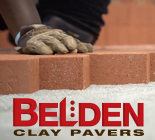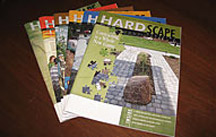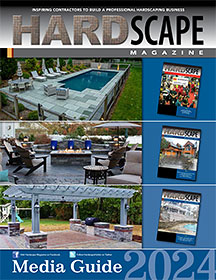Articles Written by Charles Vander Kooi
To Err is Human;
To Fix Your Errors, Divine
By Charles Vander Kooi
There are 3 ways to minimize the errors on your bid:
- Find mistakes fast.
- Review your math.
- Have field people review bids.
1. Find Mistakes Fast - There Must be Something Wrong
Finding mistakes as quickly as possible allows you to minimize their impact. When you are low bidder, even if you are low by just $35, you should take on an attitude that says, "There's only one reason we are low bidder: We made a mistake."
After everybody shakes your hand and congratulates you, you drive back to your office thinking "Woe is me, I made a mistake." You go right to your office and start looking over your bid to find what you did wrong.
There are mistakes in every bid. But that does not mean you should file away the low bid and wait to find them when they occur. They'll show themselves at 10 o'clock some morning and by 2 o'clock you will be writing a check to pay for the problem.
If you fine the mistake early on, you can get your people involved to come up with solutions to get around the problems.
Good Job, Bad Job
Contractors walk around with 2 types of jobs on their minds. There are those fat, juicy, good jobs that were bid right and have lots of money in them. Then there are the problem jobs that stink from day one and everybody knows it.
However, I have seen those good jobs become losers time and time again. Conversely, those bad jobs become money makers. Why? Attitudes. People are concerned about that bad job. They baby it and nurture it and finagle it. They work out a way to turn it around.
But nobody worries about the fat, juicy jobs. They just wade into them with little concern about costs, believing they were so fat they couldn't lose. But, with that kind of attitude, they do lose.
2. Review Your Math
How many contractors have a doctorate degree in the calculator? No one does. It doesn't matter how dexterous someone is, they are going to make mistakes on the calculator.
One of the great things about a good estimating system is that an hour or 2 before bid time an estimator is working on only 1 or 2 sheets. During that time, you can take your worksheets to someone else in the company and say, "Do me a favor, check all my math."
Now let's say you pay someone $50 an hour to do this and it takes them 30 minutes to check the math. They will find a $25 or $2,500 or $25,000 mistake. When they do, you will have made the wisest investment of your life.
You Have Tunnel Vision
Every one of us has tunnel vision. We see a project as though we have no peripheral vision. We see very plainly what is straight ahead before us, but we cannot, nor could we ever, see it completely as it really exists. There will always be things around the tunnel that we are looking past, and those things will affect and influence the cost of that job.
It doesn't matter how long you look at your job estimate, whether it's 6 hours, 6 days or 6 weeks, you will never catch some things. You may have based your estimate on using a certain material or a certain procedure that won't work. Maybe you planned on doing something with a certain piece of equipment that will not operate under that job's conditions.
That's why it's important to take an estimate to someone and say, "Make me prove to you that it can be done for this price." And, if you can't convince them, then work together figure out what the cost should be.
This concept especially applies to the labor figure on an estimate. What's the biggest risk in construction? Labor. Because of that fact, it should be the most scrutinized part of a bid.
3. Have Field People Review Bids
The third way to minimize mistakes is to talk over the job with the field people. They'll always see things an estimator can't see, so they are the best people to go over an estimate. Once they're convinced that a job can be done for a certain cost then it rests on them to go out and do the job for that cost.
I don't care how nice an estimator does an estimate, if the field people don't get it done for what was figured, it's not worth the paper it's written on. Some estimators may feel that this last procedure puts them in a subservient position to others. This is a feeling we have to overcome.
As a long-time estimator, I'm the first to admit that no matter how good an estimator is, no one is perfect. We need to be saved from our own mistakes and let's not be too proud to put hundreds, if not thousands, back into our pockets by making ourselves justify our estimates.
Remember, estimating is a process! And one important step in the process is to justify your costs in order to minimize errors.















